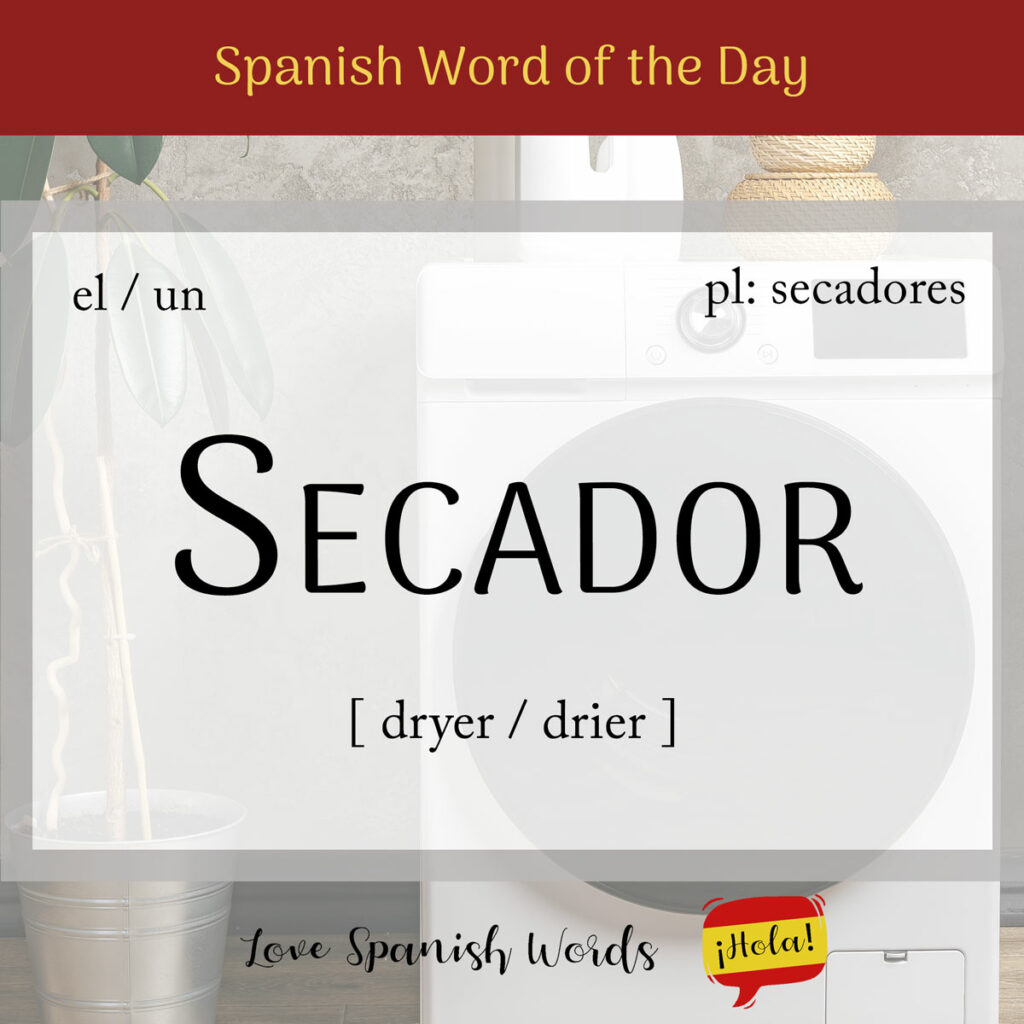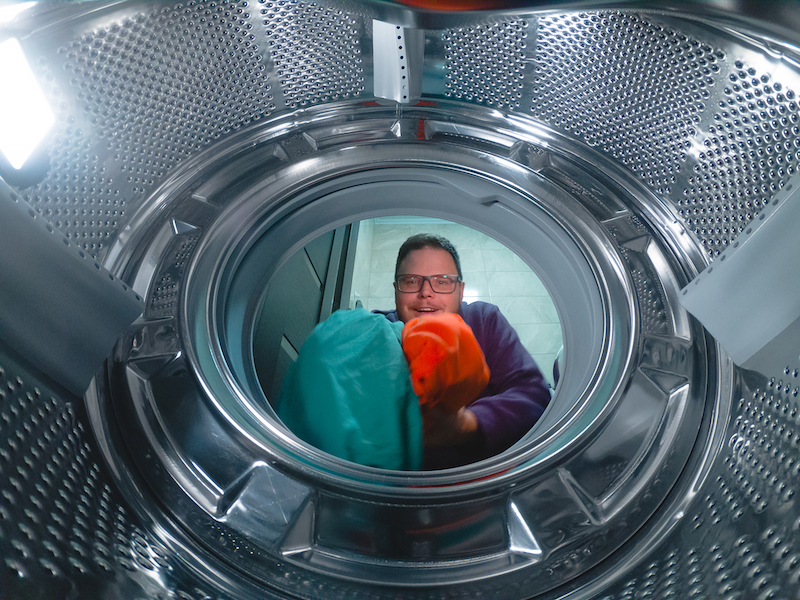Once upon a time, the most reliable dryers humans could rely on were el sol (the sun) and el fuego (fire). Today, we have various machines and devices to dry our hands, clothes, and hair. In Spanish, there is one word that encompasses all these devices: secador.
Latin American Pronunciation
European Pronunciation

The word is the combination of the verb secar (to dry) and the suffix -dor, which serves to create agent nouns. All this means is that it transforms verbs into nouns so as to denote the “doer” of the action, just like the English suffix -er. The feminine equivalent of -dor is -dora.
Secador is a masculine noun, so it takes the following definite and indefinite articles:
- el secador = the dryer
- los secadores = the dryers
- un secador = a dryer
- unos secadores = some dryers
Important: Secador is a masculine noun, but you will also encounter the feminine form secadora. Initially, dryers were referred to as el aparato secador (the drying apparatus) or la máquina secadora (the drying machine). As these devices became more popular, the terms aparato and máquina were dropped, leaving secador and secadora as standalone nouns.
Today, the choice between the two is often a matter of personal preference or regional variation. For instance, in Mexico, the feminine form secadora is more commonly used, no matter what kind of dryer you are referring to.
Here are a few of the most common appliances and devices that use the words secador and secadora:
- secador centrífugo = tumble / spin dryer
- lavadora-secadora = washer-dryer
- secadora de ropa = clothes dryer
- secador de manos = hand dryer
- secador / secadora de pelo / cabello = hairdryer
- secador de piso = Squeegee
- secador de casco = salon / bonnet hairdryer
No olvides apagar el secador centrífugo.
Don’t forget to turn off the tumble dryer.
In Central American Spanish, secador may also be used to refer to a tea towel.
Of course, secador, along with its feminine and plural forms secadora, secadores, and secadoras, can still be used as an adjective that means drying. For example, the word for a drying agent is agente secador.


